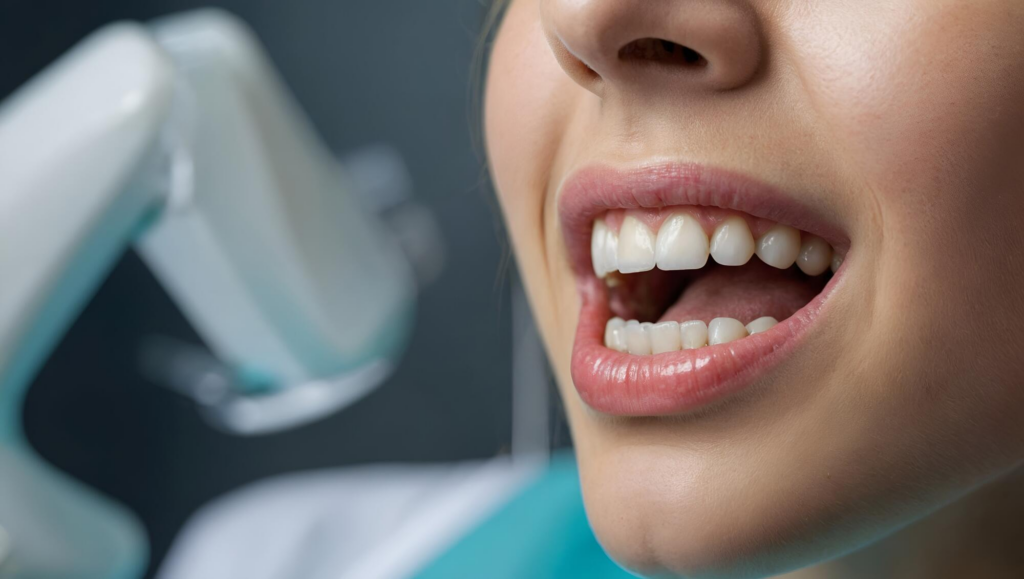When it comes to oral health, brushing and flossing aren’t the only factors at play. Nutrition plays a crucial role in achieving optimal dental care.
So in this listicle will explore how diet impacts the strength of your teeth, the health of your gums, and overall maintenance of a healthy mouth. By the end, you’ll have practical tips on how to make your teeth stronger and keep your gums in top condition.
Let’s dive in!
Calcium-Rich Foods for Stronger Teeth
Calcium is essential for maintaining strong teeth and bones. Consuming dairy products like milk, cheese, and yogurt supplies your teeth with necessary calcium. For those who are lactose intolerant or prefer plant-based options, foods like almonds, tofu, and leafy greens such as kale and broccoli also serve as excellent sources of calcium.
Strong enamel acts as a protective barrier for the inside of a healthy mouth. It the reduces the likelihood of cavities and decay.
Vitamin D and Calcium Absorption
Vitamin D plays a vital role in helping your body absorb calcium effectively. This is crucial for enamel-strengthening foods to work their magic.

Sunlight is one of the best natural sources of Vitamin D. However, you can also get it from foods like fatty fish (such as salmon and mackerel), egg yolks, and fortified cereals.
Ensuring that your diet includes sufficient Vitamin D can enhance the benefits of calcium. It can make your teeth stronger and more resilient.
The Power of Phosphorus
Phosphorus works in tandem with calcium to build strong bones and teeth. Foods rich in phosphorus, such as fish, poultry, eggs, nuts, and legumes, contribute to the repair and maintenance of tooth enamel. Incorporating these into your diet can fortify your teeth, making them more durable against wear and tear.
Vitamin C for Healthy Gums
Healthy gums are the foundation of a healthy mouth. Vitamin C is essential for maintaining the health of your gums by promoting the production of collagen. This helps keep the connective tissues in your gums strong.
Foods high in Vitamin C include citrus fruits like oranges and grapefruits, strawberries, bell peppers, and spinach. A deficiency in Vitamin C can lead to unhealthy gums, characterized by swelling, bleeding, and an increased risk of gum disease.
Antioxidants and Oral Health
Antioxidants found in foods like apples, carrots, and green tea help protect your gums from bacterial infections and reduce inflammation. These foods can improve the health of your gums, preventing the onset of periodontal diseases.
Limiting Sugar and Acidic Foods
While certain foods can help strengthen your dental health, it’s equally important to limit those that can harm it. High-sugar and acidic foods can erode tooth enamel and lead to cavities.

Soda, candy, and even certain fruit juices can create an environment that fosters tooth decay.
Opt for water, milk, or unsweetened beverages to keep your teeth in optimal condition. This habit can make your next visit to the periodontics in Niles, IL, an enjoyable one.
Optimal Dental Care Is a Balancing Act
Diet plays an essential role in maintaining optimal dental care. You have to look beyond just brushing and flossing to achieve a healthy mouth. Including calcium-rich foods, getting sufficient Vitamin D, incorporating phosphorus, and consuming antioxidants are all key aspects of a well-rounded diet for dental health.
Remember to strike a balance between healthy dietary choices for the well-being of your teeth and gums! So go ahead and enjoy that glass of milk or snack on some almonds for a brighter smile.
Did you find this article helpful? If so, check out the rest of our site for more.
